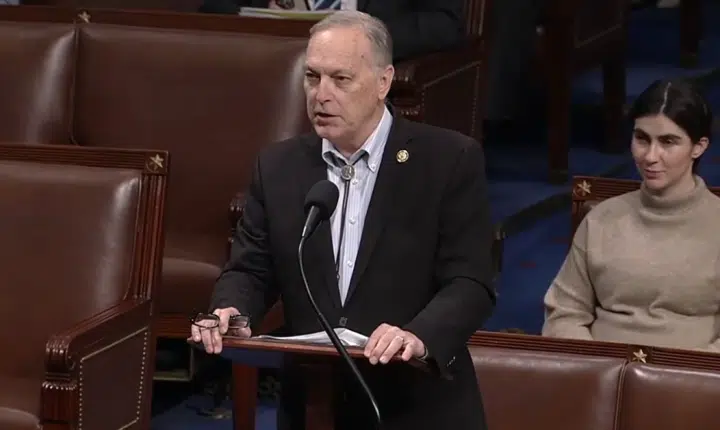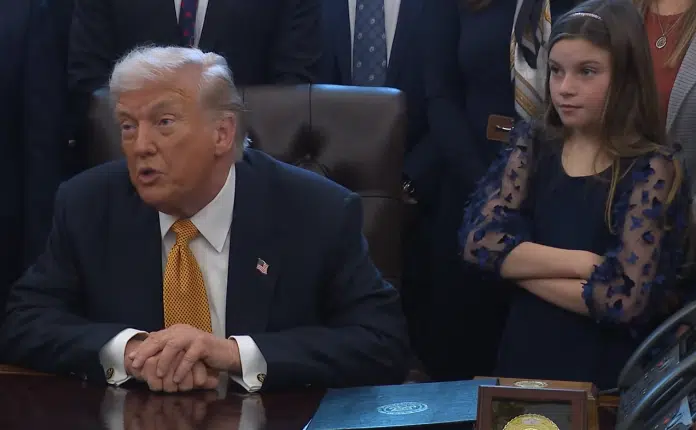By Robert Romano – Once again, oil and gasoline prices are on the march upwards, and conveniently, Barack Obama is waving the “speculators” card, promising to investigate nefarious investors he alleges are behind it all.
With average gasoline per gallon prices nationally at over $3.80 and rising rapidly, American motorists are taking note of the increases — and are asking why they’re paying more.
“[A] lot of what’s driving oil prices up right now is not the lack of supply. There’s enough supply. There’s enough oil out there for world demand,” Obama said.
Pretty much, that part is true. Since 2009, global oil consumption has increased from 84.133 million barrels a day to 86.7 million in 2010, a 3 percent increase, according to the Energy Information Agency (EIA). Furthermore, the EIA projects a further consumption increase of 1.5 million barrels a day in 2011, bringing the total consumption rise from 2009 to 2011 to a total 4.8 percent increase.
Yet, prices have increased far more dramatically. Brent oil in January 2009 was trading at a low of about $40 a barrel, and Light Sweet Crude was at low of about $35 a barrel, to now over $120 a barrel and $110 a barrel, respectively. That’s 200 percent and 214 percent increases each in price.
Oil supply is not the problem, because production has been relatively stable, increasing as consumption has increased without significant disruption each year.
Obama explained his view that “The problem is … speculators and people make various bets, and they say, you know what, we think that maybe there’s a 20 percent chance that something might happen in the Middle East that might disrupt oil supply, so we’re going to bet that oil is going to go up real high. And that spikes up prices significantly.”
Certainly oil prices, like other commodities, are extremely volatile, meaning they are extremely susceptible to supply shocks. Except, today, as Obama notes, and is confirmed by Saudi Arabia — which is now cutting back production because of a lack of buyers — there is no actual supply shortage.
Instead, Obama attests that there is fear of a supply shortage because of conflict in the Middle East. Let’s test the claim.
The Libyan conflict began in late February. By then, Brent crude had already surpassed $101 barrel, a 152 percent off its 2009 low, and Light Sweet Crude was about $87 a barrel, 148 percent above its low.
Even if one wanted to consider the revolution in Egypt, which climaxed on February 11 when Hosni Mubarak stepped down, and go back in time to before the tensions erupted there in late January, Brent was at about $97 a barrel and Light Sweet Crude was $87 a barrel, still 142 percent and 148 percent each off their lows.
Therefore, since 2009, even without the new wars in the Middle East, prices have still more than doubled. So, with no actual supply disruption and only a modest increase in demand, what else could be weighing on investors’ minds?
Probably, inflation. And the sinking dollar. You see, besides supply shocks, the other thing the prices of commodities like oil are extremely susceptible to are dramatic monetary expansions and contractions.
After all, gold too has spiked, from a low of about $820 an ounce at that time to over $1,500 now, an 83 percent increase. So, perhaps a broader range of commodity price spikes indicates another problem unrelated to the oil market.
Since the last price shock, the oil bubble in 2008, which found both Brent oil and Light Sweet Crude peaking at about $145 a barrel in July 2008, the nation’s monetary policy has been out of control. The Federal Reserve, the nation’s central bank, has increased its balance sheet from about $947 billion to over $2.73 trillion.
That was mostly to bail out the banks by buying $1.25 trillion of mortgage-backed securities and prop up the U.S. Treasury with nearly $1 trillion in new loans to back up the gargantuan levels of government spending.
The Fed’s net balance sheet expansion was a whopping 188 percent increase in the essential money supply since the last time oil prices spiked. Then, as now, politicians cried “speculators!” Of course, these same elected officials were nowhere to be found when the bubble popped and after prices crashed in a very short period of time.
As the financial crisis unfolded, and deleveraging ravaged institutional investors, money fled the markets — including the commodities markets — finally crashing at the end of 2008.
Since then, as noted above, both Brent and Light Sweet Crude have increased 200 and 214 percent off their lows. That’s roughly the range of the Fed’s 188 percent increase in the supply of dollars since July 2008. Importantly, since the dollar is the world’s reserve currency, and global commodity markets trade in dollars, such a dramatic increase in the supply dollars will have a very predictable result.
In fact, it was predicted. In January 2009, I wrote, “the prediction is not for instant inflation, but that once market-based thawing does apparently begin to ensue, and all the excessive liquidity finds its way into the marketplace, demand will spike in one area or another and thus so will prices. There will be another asset bubble.”
Can’t say we didn’t warn the politicians what would happen.
The late, great Milton Friedman once taught us that “[i]nflation is the result of too many dollars chasing too few goods.” So, there is a supply problem. Just not with oil. There’s too many dollars chasing the same amount of oil.
If there is to be any investigation, it should be into the government’s inflationary spending and monetary policies. House Republicans ought to use their majority status to shed light on this growing inflation crisis.
So, when the American people head to pump in the coming months, with gasoline nearing $4 a gallon nationally, headed to $5, they ought to remember who to really thank for the pain at the pump. It’s not the “speculators,” whoever they may be. It is Fed head Ben Bernanke, and of course, the spender-in-chief, Barack Obama.
Robert Romano is the Senior Editor of Americans for Limited Government.







